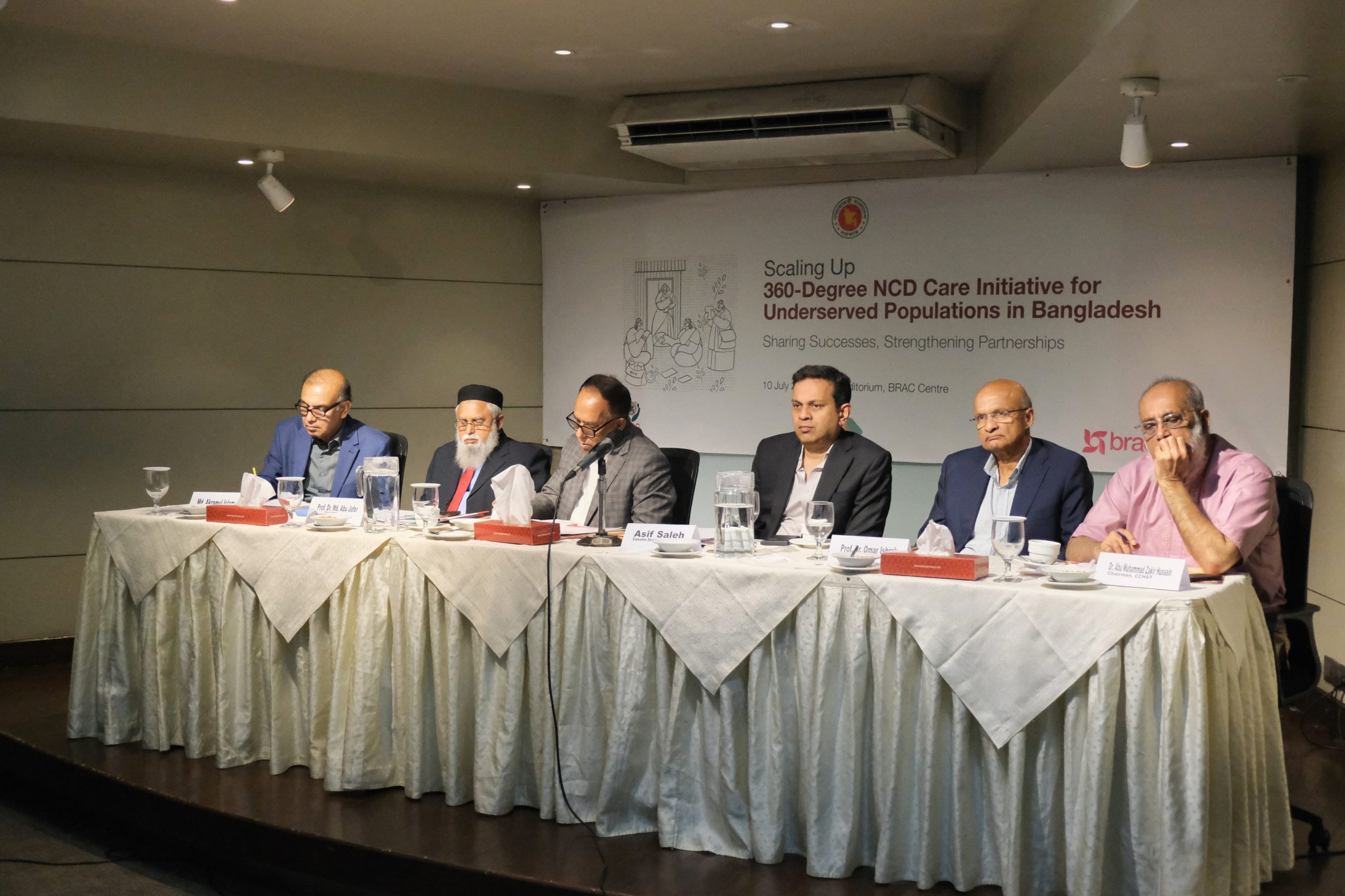BRAC Launches 360° NCD Care Initiative

Health Overview
Non-communicable diseases (NCDs) now account for about 70 percent of all deaths in Bangladesh. With nearly 68 percent of healthcare costs paid out-of-pocket, many families are driven into poverty and millions lack access to essential care. Although Bangladesh has made strides against infectious diseases, chronic conditions such as hypertension, diabetes, respiratory illnesses, and cancer remain under-prioritized. Screening, continuous treatment, and affordable medicines are still out of reach for a large part of the population.
Launch of the 360-Degree NCD Care Model
On Thursday, 10 July 2025, at the BRAC Centre auditorium, the Directorate General of Health Services (DGHS), BRAC, and US-based Medtronic Labs officially launched the 360-Degree NCD Care Initiative. Government officials, development partners, public-health experts, and frontline workers gathered to review a comprehensive, scalable model for NCD care.

Geographic Challenges
Md. Saidur Rahman, Secretary to the Health Services Division, noted that in remote hilly and char regions of Kurigram and Gaibandha, government health services are still absent. He underlined the need for close collaboration between public and private sectors to close these gaps. Door-to-door screening and data collection, he said, will build an accurate national health database and support sustainable progress.
People-Centred Prevention and Engagement
Asif Saleh, Executive Director of BRAC, argued that fundamental health-system reform requires investment in people, prevention, and primary care. He stressed that while government action is essential, universal health schemes and ongoing behaviour-change communication are also crucial. Past successes in outcome-based public-health programmes must be replicated and scaled up to reshape the future of healthcare.
Technical Solutions and Community Follow-Up
Professor Dr. Md. Abu Jafor, Director General of DGHS, reported that one in four Bangladeshi adults has hypertension and one in ten has diabetes—largely due to unhealthy diets and sedentary lifestyles. According to WHO, 40 percent of these deaths are preventable. He emphasised urgent, joint efforts and strong community involvement to tackle this crisis.

Professor Dr. Abu Muhammad Zakir Hussain, Chairman of the Community Clinic Health Support Trust, highlighted the threat NCDs pose across all communities. He called for expanded primary care at the community level, improved digital tools for patient follow-up, and enhanced government–partner collaboration. “Health must begin at people’s doorsteps, not just in hospitals,” he said.
Dr. Md. Akramul Islam, Senior Director of BRAC’s Health and Humanitarian Crisis Management Programme, explained how BRAC’s Community Health Workers use the SPICE digital platform for teleconsultations, follow-up support, and outcome tracking. SPICE is now integrated with the national DHIS2 system, enabling real-time data sharing and evidence-based decision-making.

Pilot Success and Expansion
Piloted in five upazilas—including Nilphamari and Narayanganj—the model achieved 78 percent blood pressure control and 41 percent diabetes control among over 4,500 patients who had previously dropped out of care. It has since expanded to 43 upazilas across seven districts, with plans for nationwide rollout.
Future Plans
As Bangladesh faces rising NCD rates and related economic burdens, the 360-Degree NCD Care Initiative offers a timely, scalable solution. With government leadership, BRAC’s community outreach, and Medtronic Labs’ technical support, the model is poised to reach the most vulnerable, reduce avoidable deaths, and build a more equitable health system for the future.












